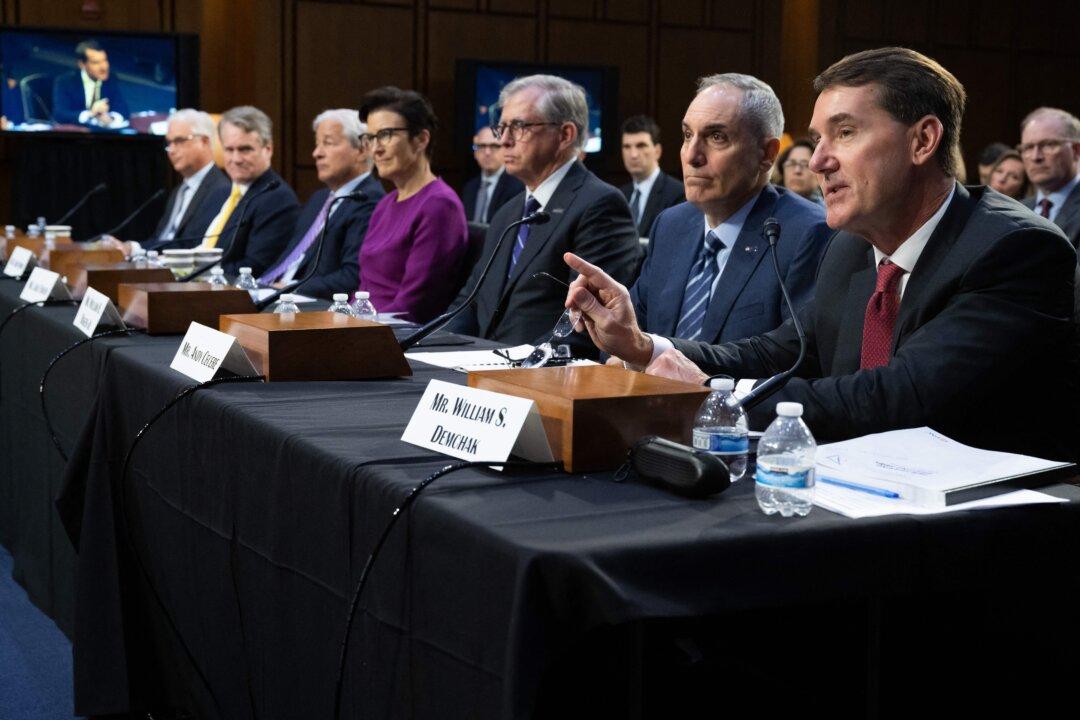The banking turmoil following the collapse of Silicon Valley Bank (SVB) has significantly affected the American public’s confidence in banks and other financial institutions, according to a new poll.
The poll from the Associated Press-NORC Center for Public Affairs Research found that just 10 percent of U.S. adults say they have high confidence in the nation’s banks and financial institutions, down from 22 percent in 2020.




